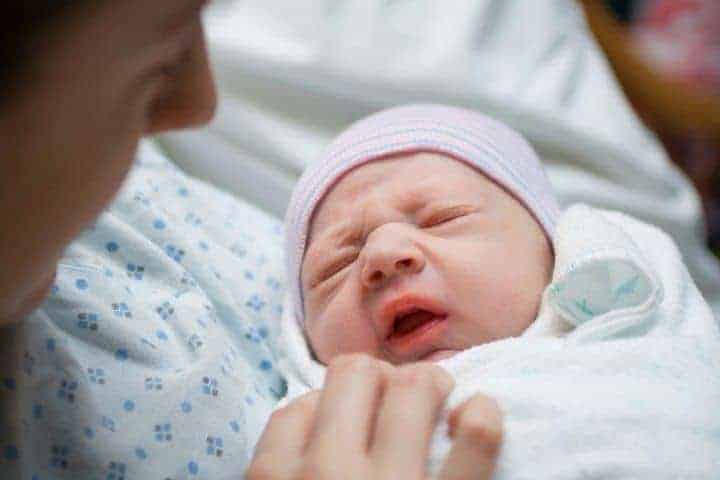A reassuring new study reveals that newborns who contract human papillomavirus (HPV) during pregnancy or childbirth naturally eliminate the virus, typically within just a few months.
The Canadian research brings welcome news to expectant mothers diagnosed with HPV, showing the virus poses minimal long-term risk to their babies despite its prevalence among adults of reproductive age.
The findings, published this week in the Journal of Infectious Diseases, come from a comprehensive five-year study led by epidemiologist Helen Trottier at the Centre de recherche Azrieli du CHU Sainte-Justine and Université de Montréal’s School of Public Health. The research tracked babies born to HPV-positive mothers and found surprisingly swift virus clearance.
Swift and Complete Virus Elimination
The study shows babies who contracted HPV during pregnancy or birth took just under four months, on average, to eliminate the virus without medical intervention. Even more encouraging, the researchers found all babies in the study were HPV-free within 24 months.
“This data is very encouraging,” says Eméra Alice Bénard, an Université de Montréal master’s student and the study’s first author. “We now know that it’s quite unlikely for a mother to transmit the virus to her baby during pregnancy or childbirth. Even if transmission occurs, the risk of the baby contracting a severe or persistent form of the virus is very, very low.”
Transmission Less Common Than Expected
The HERITAGE (Human Papillomavirus perinatal transmission and risk of HPV persistence among children) study followed 422 HPV-positive pregnant women receiving care in three Montreal hospitals. The research team monitored 200 newborns for two years, with an additional 75 children tracked for five years.
The findings revealed the probability of HPV transmission from mother to baby was just 7.3% when considering all potential transmission sites. This relatively low transmission rate aligns with previous research estimates but provides more detailed insight thanks to the study’s comprehensive monitoring approach.
Among the babies who did contract HPV, the vast majority showed complete virus clearance within months, with virtually no cases of virus persistence or recurrence. Only one baby in the study showed a persistent infection (same virus detected at two consecutive visits), and only two showed recurrent infections (virus disappeared and then reappeared later).
Implications for Parents and Healthcare
These findings offer several important takeaways for expectant parents and healthcare providers:
- Transmission from mother to baby is relatively uncommon (7.3% of cases)
- When transmission occurs, babies naturally eliminate the virus in approximately 3.9 months on average
- The risk of persistent or recurring infection in babies is extremely low (around 2-4%)
- All babies in the study had cleared the virus by 24 months of age
- No HPV was detected in children during the extended 3-5 year follow-up period
HPV is the most common sexually transmitted infection worldwide and is recognized as the primary cause of cervical cancer, in addition to explaining about one-third of all head and neck cancers. Several studies have also linked HPV infections to an increased risk of premature birth.
This research should provide reassurance to HPV-positive pregnant women who might worry about potential consequences for their babies. The body’s natural immune response in infants appears remarkably effective at handling the virus.
How Transmission Occurs
While the study focused primarily on vertical transmission (from mother to baby during pregnancy or childbirth), the researchers also discovered new cases of HPV infection in babies who had not contracted it at birth.
“This may be transmission from the mother after birth, or from the father or another person caring for the child, through bathing or diaper changes for example,” Trottier explained.
However, these newly acquired infections followed the same pattern as those acquired at birth – all were effectively eliminated by the children’s immune systems within a similar timeframe. By age two, all children in the study had cleared the virus.
Vaccination Still Crucial
Despite the encouraging findings about babies’ natural ability to clear the virus, the researchers emphasize that HPV vaccination remains vital for preventing complications in adults.
“Vaccination is a very effective measure for preventing HPV,” said Trottier. “Even if the risk is low for babies, it is imperative to do it for oneself.”
The virus is particularly prevalent among people of reproductive age, and while babies may clear it easily, adults can develop persistent infections that potentially lead to various cancers and other health complications.
The Canadian research is part of a growing body of evidence that helps us understand the natural history of HPV across different age groups. While adults often struggle to clear persistent HPV infections, this study suggests babies’ immune systems are remarkably efficient at eliminating the virus before it can establish a foothold.
The findings provide a positive note in HPV research, suggesting that even as HPV testing becomes more common in prenatal care, positive results need not cause undue anxiety about a baby’s health. The infant immune system appears well-equipped to handle this particular challenge, regardless of how concerning the virus might be for adults.
If our reporting has informed or inspired you, please consider making a donation. Every contribution, no matter the size, empowers us to continue delivering accurate, engaging, and trustworthy science and medical news. Independent journalism requires time, effort, and resources—your support ensures we can keep uncovering the stories that matter most to you.
Join us in making knowledge accessible and impactful. Thank you for standing with us!

